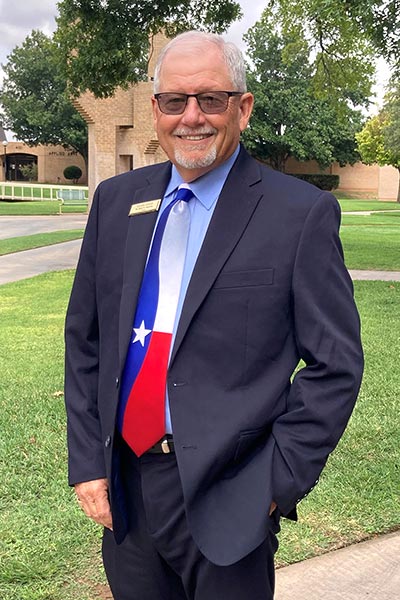
Dr. Dusty R. Johnston
Dr. Dusty R. Johnston has served over forty-three years in the education profession teaching in secondary education and working as a teacher and administrator at four community colleges in two states. Two years at Cal Farley’s Boys Ranch, fifteen years at Howard College in Big Spring, Texas, eight plus years at Rich Mountain Community College in Mena, Arkansas, three plus years as president of Ozark College in Melbourne, Arkansas, and the past fourteen plus years as president of Vernon College. Dr. Johnston earned a Bachelor of Science (1980) and Master of Education (1984) in Agricultural Education and later a Doctorate of Education (1990) in Higher Education from Texas Tech University. He has served to promote community colleges and higher education in numerous ways including on-site and off-site evaluator for Southern Association of Colleges and Schools Commission of Colleges and The Higher Learning Commission of the North Central Association of Colleges and Schools, member and executive committee member of the Texas Association of Community Colleges, chair of the Texas Higher Education Coordination Board Community and Technical College Funding formula committee, community college advocate in the past eight Texas legislative sessions, member of Texas Community College Teachers Association, and adjunct professor for the Texas Tech University doctoral program in Higher Education Leadership. Dr. Johnston’s career has been highlighted by development and implementation of extensive planning processes, thorough assessment programs, conservative budgeting, data driven decision-making, legislative involvement, and a tremendous emphasis on ensuring student success as defined by retention, completion, transfer, and job placement. During his career, he has had the opportunity to build, expand, and renovate numerous facilities as well as plan and implement many campus improvements. Dr. Johnston firmly believes in continuous improvement by assessing the Five Ps ( programs, policies, procedures, processes, and practices) to continually meet the needs of students, communities, and employees.
